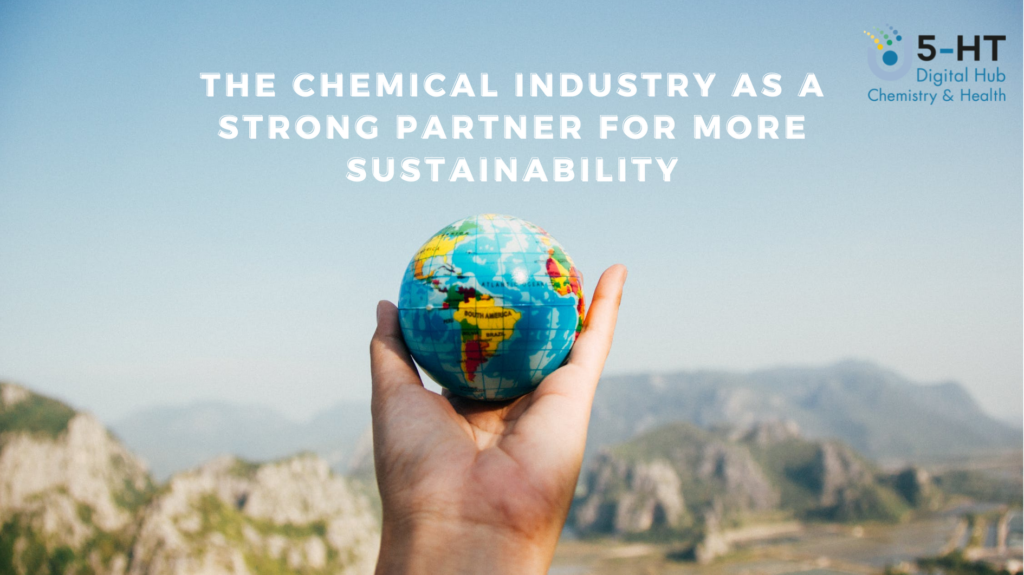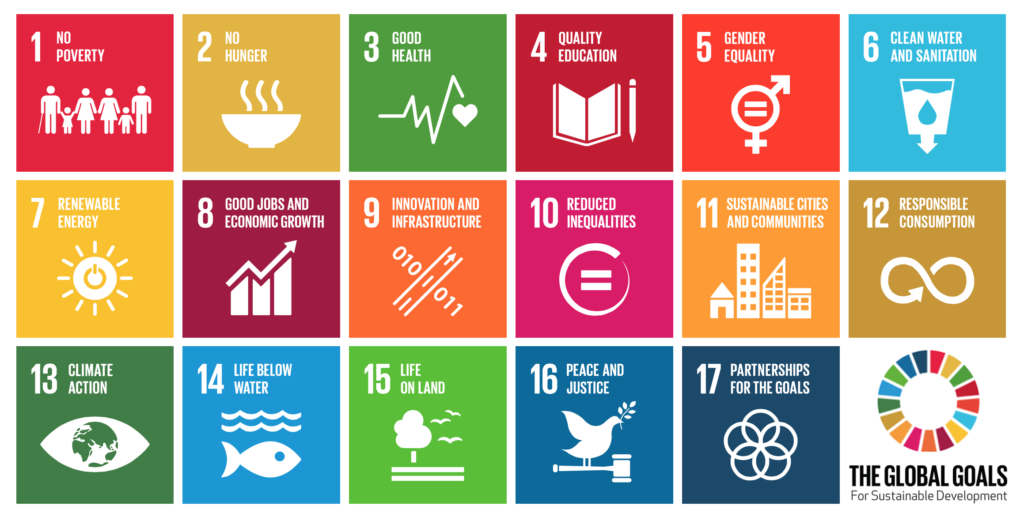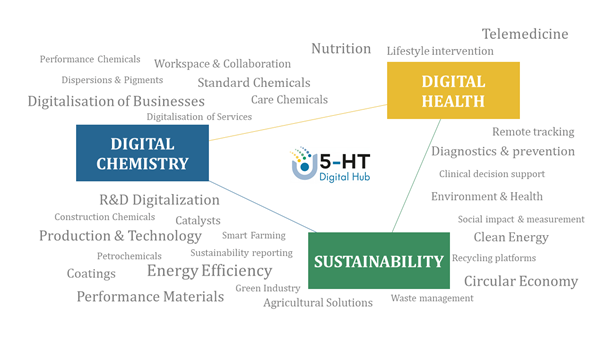The chemical industry as a strong partner for more sustainability
Laura Reich Diez
"As an industrialised country on the road to sustainability - no successful socio-ecological transformation without energy transition" - under this title, Federal Environment Minister Svenja Schulze praises the importance of sustainability in the chemical industry. But what does that actually mean exactly?
Sustainability is not a recent topic in the chemical industry, yet it is currently more relevant than ever. The chemical industry is the third largest industry in Germany. It is at the beginning of every value chain and is closely linked to other industries. Products and fragments of the chemical industry can be found in almost all areas of everyday life, be it in the clothes we wear, the mobile phones in our hands or the cars we drive. In addition, the chemical industry contributes a large part to the success of the German economy and thus to securing qualified jobs.
At the same time, consumers in particular are setting new priorities. More emphasis is being placed on sustainability and their own ecological footprint. Through continuously optimised production processes and improved environmental protection technologies, the chemical industry has already been able to reduce its emissions of the greenhouse gases CO2 and nitrous oxide by about half compared to 1990. But to achieve complete CO2 neutrality, a fundamental transformation of the industry is necessary.

Chemical industry relies on transparency
The chemical industry has been dominated by the megatrends of digitalisation and the circular economy for quite some time. Particularly in recent months, the necessity and benefits of digitalisation have been established in the wake of the Covid-19 pandemic. This is also shown by the trend study on the use of artificial intelligence, "Germany learns AI". The study, conducted by Bitkom Research, defines AI as a key technology relevant to the competitiveness of the chemical and pharmaceutical industry and refers to the frequently cited "digitalisation boost through the Covid-19 pandemic".
The advancing digitalisation of the chemical industry is accompanied by the topics of transparency and sustainability, which are also becoming much more relevant in society. The increased social acceptance of innovative processes creates great opportunities for the transformation of the chemical industry.
This is also shown in a study by the German Chemical Industry Association (VCI) in cooperation with the consulting company Deloitte. It analyses the recent transformation of the chemical industry with a focus on digitalisation and sustainability. "The chemical and pharmaceutical industry has long understood sustainability as an obligation towards current and future generations - and as a strategy for the future in which economic success is linked to social justice and ecological responsibility," says the German Chemical Industry Association.
Together for Sustainability: sustainable value chains
When it comes to downstream industries and end markets, innovations in the chemical sector often lead the way. For this reason, it is particularly important that companies from the chemical sector set a good example and make their processes sustainable.
As a matter of fact, value chains are characterised by a high degree of complexity. In the course of digitalisation, there has also been a better networking of supply chains. Existing offerings are being digitally supplemented, linear value chains are developing into networks. Added to this is the demand for more transparency and sustainability of society.

The Initiative Together for Sustainability
To improve sustainability in value chains, leading chemical companies launched the Together for Sustainability (TfS) initiative 10 years ago. The founding members BASF, Bayer, Evonik, Henkel, Lanxess and Solvay have made it their mission to develop and implement a global programme that assesses, monitors and improves sustainability practices along the chemical industry supply chain. TfS has now become an industry standard for collaboration on sustainable supply chains and has grown its membership to 20 companies from Europe and the USA. Transparency and sustainability of and in supply chains also contributes to greater social acceptance of the chemical industry and its products.
Sustainability through resource conservation
In many industrial sectors, the topics of resource conservation and the ecological footprint are playing an increasingly important role as indicators of sustainability. Many companies in the chemical sector are integrating the circular economy into their processes as an approach to greater sustainability. Circular and resource-saving management should go beyond recycling and give environmentally friendly innovations a chance. Sustainable processes consume only a minimum of resources. In this context, energy efficiency can be sustainably increased by processes that run at room temperature and under normal pressure, for example through the use of catalysts. In addition, most chemical suppliers have recognised waste reduction as a path to sustainability. The careful use of natural resources is one of the central challenges of our time.
Global Goals for Sustainable Development
In order to enable future generations to have a sustainable future worth living, the 2030 Agenda for Sustainable Development was adopted at the UN Summit on Sustainable Development in September 2015. This includes the so-called 17 Sustainable Development Goals, which are globally oriented and universally applicable. Goal 12 "Produce and consume responsibly" is particularly important for the chemical industry. In order to make the economy more sustainable, it is necessary to change both consumption and production techniques.
The European Commission already published its Communication "Chemicals Strategy for Sustainability - Towards a Pollutant-Free Environment" last autumn. The strategy aims to promote innovative solutions for safe and sustainable chemicals. This is part of the Green Deal, which primarily pursues the goal of achieving climate neutrality in Europe by 2050 and making the EU economy more sustainable.

"The Global Goals for Sustainable Development"
Chemical startups set the course for sustainability
The study "Innovation Indicators Chemistry 2020" by the University of Hanover and ZEW Mannheim, commissioned by the German Chemical Industry Association, also comes to a positive conclusion regarding the importance of sustainability in the chemical industry. Particularly interesting: a trend towards climate protection and sustainability is evident among company start-ups and start-ups. Almost a quarter of the chemical start-ups in Germany have business models for climate protection and sustainability. Innovations in the chemical industry can make a significant contribution to climate protection and the sustainable transformation of the economy and society.
The sustainability initiative of the German chemical industry
The Chemie3 initiative understands sustainability as a triad of economy, ecology and social issues. In May 2013, the German chemical industry was the first sector to define sustainability guidelines with the aim of anchoring sustainable thinking and action in the DNA of the chemical-pharmaceutical industry. The focus is primarily on the companies as central players in the industry. Because only if the companies continue to develop in the direction of sustainability will the industry also change.
Major chemical companies are leading the way
The chemical industry is a strong partner for more sustainability and a signpost for socio-economic transformation. Large chemical companies are leaders in sustainable production. Innovative processes bring about sustainable improvements. Numerous chemical and pharmaceutical companies, such as Bayer, BASF, Merck and Lanxess, have already set concrete climate targets and taken an important step towards sustainability to enable a successful socio-ecological transformation of the industry. Above all, more emphasis is to be placed on electricity from renewable energies and sites are to be made climate neutral.
"The focus of 5-HT Digital Hub Chemistry & Health is on the digitalisation of the chemical and health industries. At the same time, it is essential for us to promote sustainability in these areas. Our goal is to bring together innovative ideas from start-ups and established companies in order to consolidate the success of the industry in the medium and long term. Digital technologies are the key to actively shape a sustainable future."
Dr. Frank Funke, Managing Director of 5-HT Digital Hub Chemistry & Health.

Focus and topics of 5-HT Digital Hub Chemistry & Health
5-HT Chemistry & Health Newsletter
Want the latest tech and industry news, events, relevant info from the ecosystem and more?
Subscribe to 5-HT Newsletter now Subscribe to 5-HT Newsletter now
Become part of the 5-HT Chemistry & Health
Exchange ideas with innovative startups and future-oriented companies in our ecosystem. We look forward to meeting you!